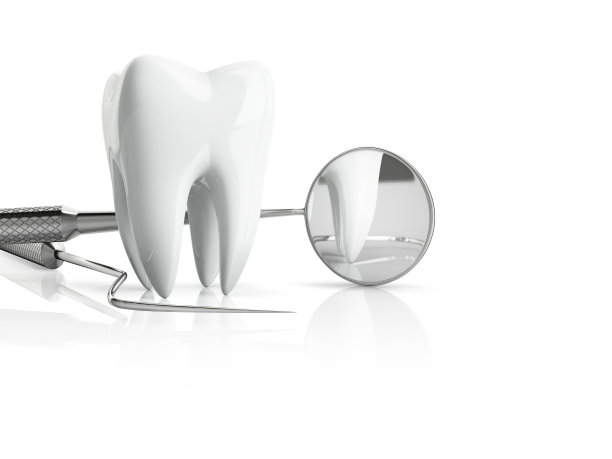Summary: Dental fillings are essential for restoring teeth affected by decay and ensuring proper oral health. However, understanding the necessary precautions to take before and after the procedure can significantly influence the outcome. This article discusses key considerations, including preparation steps, dietary recommendations, post-treatment care, and regular dental check-ups. By following these guidelines, individuals can help ensure that their dental fillings provide long-lasting relief and maintain overall oral health. The careful management of dental care not only aids in recovery but also prevents further complications in the future.
1. Preparing for Your Dental Filling

Before undergoing a dental filling procedure, it is essential to prepare adequately. One of the first steps is to communicate openly with your dentist about your medical history and any medications you are currently taking. This information can help the dentist determine the best approach for your filling, ensuring that it addresses your specific needs.
Moreover, consider scheduling your appointment at a time when you feel less stressed or rushed. Anxiety can hinder your ability to cooperate during the procedure, which may lead to complications. Its vital to arrive at the dental office with a calm mindset, as this helps the dentist perform the filling more efficiently.
Lastly, plan for post-procedure recovery by arranging for someone to drive you home if you have received anesthesia. Taking these simple but crucial steps will contribute to a smoother filling process and promote better recovery.
2. Dietary Considerations After a Filling
After getting a dental filling, your diet plays a pivotal role in how well your teeth heal. It is advisable to avoid hard, crunchy, or sticky foods for at least 24 hours following the procedure. These types of foods can dislodge the filling or cause unnecessary discomfort to the affected area.
Opt for softer foods such as yogurt, mashed potatoes, or smoothies that require minimal chewing. Additionally, if you have received anesthesia, be cautious when consuming hot beverages or foods, as you may not have full sensation in your mouth, increasing the risk of burns.
Furthermore, maintaining proper hydration is vital. Drink plenty of water to keep your mouth moist and aid in healing, but avoid sugary or acidic beverages that could interfere with your recovery process.
3. Post-Treatment Care and Hygiene
Effective oral hygiene is crucial after receiving a dental filling to ensure its longevity and prevent further decay. It is recommended to resume your normal brushing routine within a few hours after the anesthesia wears off. Be gentle around the filled area to avoid discomfort but maintain a thorough cleaning regimen to remove plaque and food particles.
Flossing should also be incorporated into your post-treatment care. However, do so with caution around the filling to avoid dislodging it. Consider using unwaxed dental floss, which is less likely to catch on the filling, making the process smoother.
Besides regular brushing and flossing, it’s beneficial to use an antimicrobial mouthwash to help reduce bacteria in your mouth. This practice not only supports healing but also promotes overall oral health. Regular visits to your dentist for professional cleanings and check-ups will further ensure that your fillings and teeth remain in excellent condition.
4. Importance of Regular Dental Check-ups
Even after receiving a dental filling, the importance of regular dental check-ups cannot be overstated. Scheduling follow-up appointments allows your dentist to monitor the condition of the filling and surrounding teeth. Early detection of any problems can prevent the need for more extensive treatments in the future.
Moreover, these check-ups provide an opportunity for professional cleaning, which removes calculus and plaque buildup that routine brushing may miss. This practice not only helps the fillings last longer but also enhances overall oral hygiene.
Regular visits to your dental professional also serve as timely reminders to maintain preventive care, helping you develop good habits that can protect your teeth sustained over time. Ultimately, consistent attention to your dental health can lead to a healthier, brighter smile.
Summary:
In conclusion, ensuring optimal oral health after receiving a dental filling requires thoughtful preparation and dedicated post-treatment care. By adhering to the outlined precautions, individuals can enhance the longevity of their fillings, maintain oral hygiene, and minimize future dental problems. Prioritizing good practices both before and after the procedure will maximize the success of dental fillings and promote overall well-being.
This article is compiled by Vickong Dental and the content is for reference only
Vickong Dental
Vickong Dental is a large medical group established in Hong Kong in 2008 by professors from well-known medical universities in Guangdong and Hong Kong, as well as medical doctors from key national '985' universities (including Master's supervisors and senior professors). The chain of branches brings together expert dentists with PhDs and Master's degrees from Hong Kong and Mainland China, committed to providing high-quality dental treatment.
"Vickong Dental Practices the University Motto of 'Healing and Serving Society,' with a Stable Operation for Sixteen Years. It Has Been honored with Hong Kong Enterprise Leaders's Choice,' and is a Global Trusted Implant Center for the Nobel Implant System. Recommended by Hong Kong Metro Broadcast and Guangdong Television, it Serves Customers from Over Thirty Countries and Regions, Gaining the Trust and Favor of Citizens from the Guangdong-Hong Kong-Macau Greater Bay Area and Surrounding Cities.

Thousands of customers' unanimous praise
The most recognized and highly recommended dental service by customers in the Guangdong-Hong Kong-Macau Greater Bay Area
We Ensure You Receive Detailed Care and Attention Here
Hong Kong standards, Shenzhen prices, Your Trusted English-speaking dentists

Vickong Dental Medical-Grade Instrument Disinfection Process
Vickong Dental Medical-Grade Instrument Disinfection Process

Vickong Dental Chain: A Warm and Comfortable Environment for Treatment






Appointment Hours

Q&A
Why choose Vickong Dental?
Vickong Dental practices the university motto 「Medicine to Benefit Society」, with each branch bringing together highly qualified dentists with doctoral and master’s degrees from Hong Kong and the Mainland, and has maintained seventeen years of steady operation。Recipient of 「2024 Hong Kong Enterprise Leaders Brand」, 「2025 Hong Kong Enterprise Leaders Brand」, a Nobel Biocare Global Trusted Implant Center, and a brand recommended by Metro Radio Hong Kong and Guangdong TV。
To date, we have served customers from more than thirty countries and regions,earning exceptionally high word-of-mouth recognition and trusted recommendations from residents across the Guangdong-Hong Kong-Macao Greater Bay Area and surrounding cities
We have eight major branches in Zhuhai、Shenzhen,and a consultation and service assurance center in Hong Kong,so you can book a free consultation at any time for any questions,which is very reassuring.
If I do not accept the quotation after the CT scan, will I be charged??
No! As long as the actual treatment has not started, you will not be charged any fees.
Will there be any additional charges during the treatment process?
No, there won’t be any additional charges. Before treatment begins, we will clearly explain the treatment plan and its corresponding fees. Only after the patient agrees and signs the consent form will we proceed with the dental service.
Can I pay in Hong Kong dollars?
Yes. Vickong Dental accepts payment in Hong Kong dollars. The amount will be converted based on the exchange rate of the day, and the applicable rate will be clearly communicated to you in advance.
Can I reschedule my appointment at any time?
Yes. Please contact us via **WeChat** or **WhatsApp** as early as possible, providing your original appointment time and details, along with your preferred new date and time slot for rescheduling.













